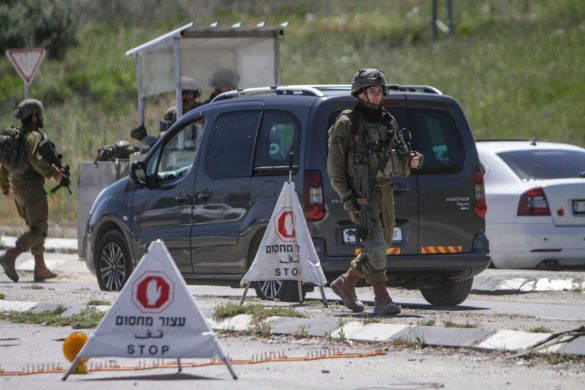For første gang nogensinde har de egyptiske myndigheder nægtet indrejse til repræsentanter for Human Rights Watch. Organisationens direktør og regionale direktør skulle have lanceret en rapport om myndighedernes drab på demonstranter i sommeren 2013.
NEW YORK, 11. august 2014 (Human Rights Watch): Egyptian authorities refused to allow Human Rights Watch Executive Director Kenneth Roth and Middle East and North Africa Director Sarah Leah Whitson to enter Egypt on August 10, 2014. Roth and Whitson were to brief diplomats and journalists in Cairo on a 188-page Human Rights Watch report on the mass killings in Egypt in July and August 2013.
When Roth and Whitson arrived at Cairo International Airport, authorities refused to allow them into the country without giving an explanation for the decision.
This is the first time that Egyptian authorities have denied Human Rights Watch staff members entry to the country, including during the Mubarak government.
“We came to Egypt to release a serious report on a serious subject that deserves serious attention from the Egyptian government,” Roth said. “Instead of denying the messenger entry to Egypt, the Egyptian authorities should seriously consider our conclusions and recommendations and respond with constructive action.”
The report, “All According to Plan: The Rab`a Massacre and Mass Killings of Protesters in Egypt,” documents how Egyptian police and army methodically opened fire with live ammunition on crowds of demonstrators opposed to the military’s July 3 ouster of President Mohamed Morsy at six demonstrations in July and August 2013, killing at least 1,150 people, and how no one has been held to account one year later.
Human Rights Watch conducted a year-long investigation into the killings, including interviews with over 200 witnesses, visits to each of the protest sites, and review of video footage, physical evidence, and statements by public officials.
Human Rights Watch wrote to Egypt’s Interior Ministry, Office of the Public Prosecutor, Defense Ministry, Foreign Affairs Ministry, Embassy in Washington, DC, and Mission in New York on June 12 soliciting the Egyptian government’s perspectives on the issues covered in the report.
Human Rights Watch sent follow-up letters on July 8 asking to meet with officials during the planned August visit to Egypt. Copies of the report were sent to the same officials on August 6. Human Rights Watch did not receive substantive responses to any of its queries.
“We had already shared our report on last year’s mass unlawful killings in Cairo with senior Egyptian officials and were hoping to have meetings with them to discuss our findings and recommendations,” Roth said. “However, it appears the Egyptian government has no appetite to face up to the reality of these abuses, let alone hold those responsible to account.”
Human Rights Watch closed its office in Cairo in February because of concerns about the deteriorating security and political environment in the country. Authorities have imposed extensive restrictions on civil society organizations over the past year.
A new draft law on nongovernmental organizations would effectively give the government and security agencies veto power over all activities of associations in Egypt.
Local groups in a joint statement have described the measure as a “declaration of war by the government on freedom of association and the work of civil society organizations in Egypt.”
The Human Rights Watch report, “All According to Plan: The Rab’a Massacre and Mass Killings of Protesters in Egypt,” will be released on schedule at 08:01 a.m. GMT, 11:01 a.m. Cairo time on August 12.















